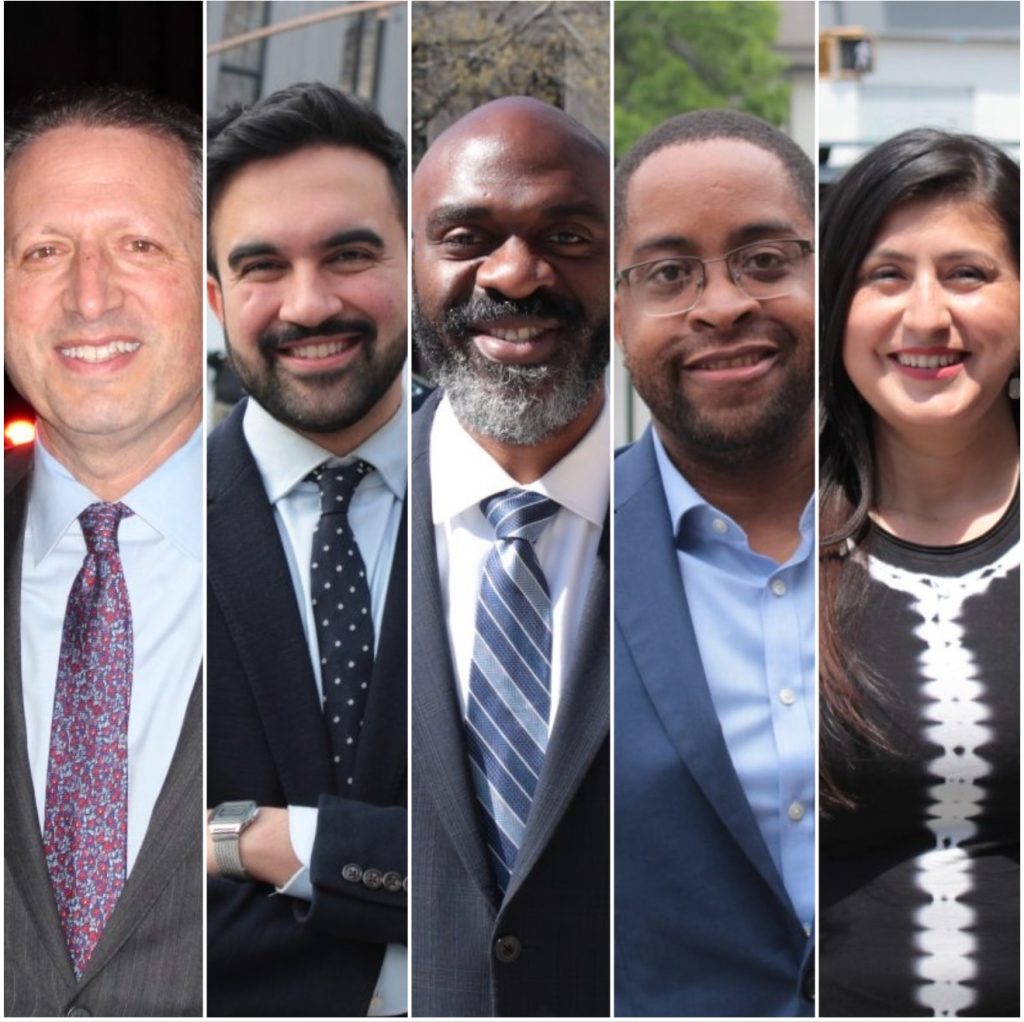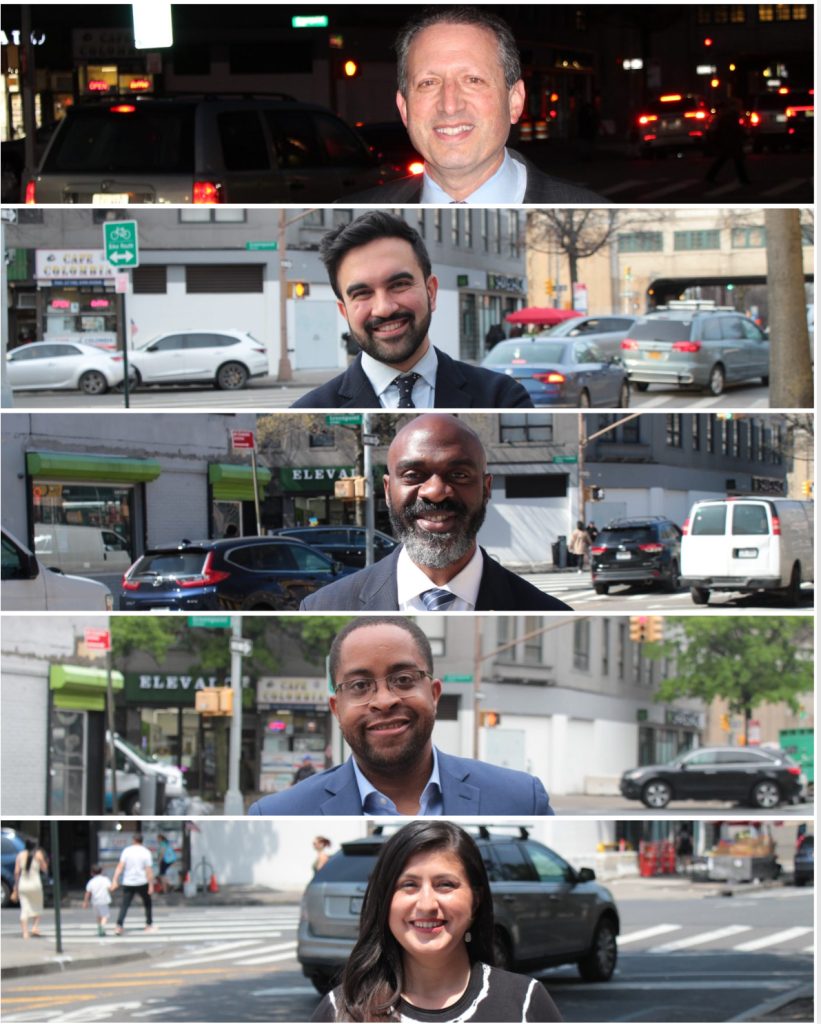
Inside the NYC Mayoral Primary: Who Stands Out?
By MOHAMED FARGHALY
mfarghaly@queensledger.com
With Election Day fast approaching on Tuesday, June 24, we are bringing you an exclusive cheat sheet spotlighting the most innovative ideas and standout qualities of the mayoral candidates we had the opportunity to interview in a political roundtable at our office during the campaign season. Eleven Democrats are battling it out in a crowded primary to succeed Mayor Eric Adams — who’s charting his own path by running for reelection as an independent, bypassing the Democratic contest altogether. The winner of that primary will face Adams, Republican Curtis Sliwa, and independent Jim Walden in November’s high-stakes general election. Adding to the drama, former Governor Andrew Cuomo and Assemblyman Zohran Mamdani could still appear on the ballot in November under independent and third-party lines, regardless of their primary outcomes. As early voting unfolds in the final days leading up to Election Day, we break down what makes these candidates unique — from bold policy ideas to creative solutions — helping voters cut through the noise and get a clear snapshot of who’s shaping the future of New York City.
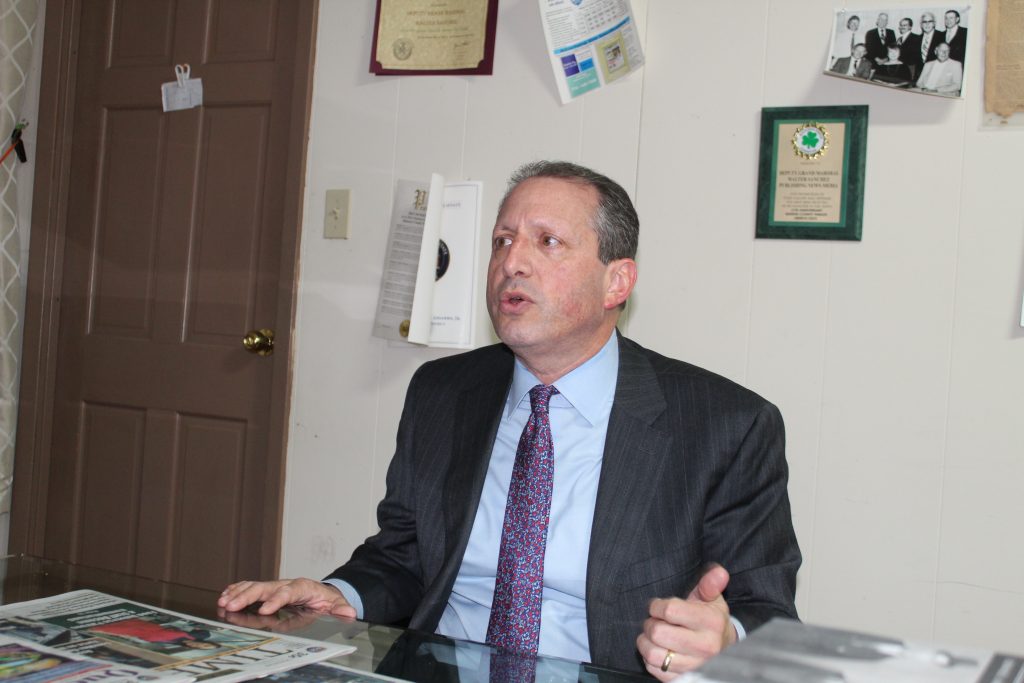
Brad Lander
As Election Day nears, City Comptroller Brad Lander is making his case for mayor with a campaign that blends progressive ideals with a pragmatic approach to governance. A longtime advocate for affordable housing and government accountability, Lander brings decades of public service to the race, first as a Brooklyn community organizer, then as a City Council member, and now as the city’s fiscal watchdog. He’s betting that his track record — and his reputation for clean, competent government — will resonate with voters disillusioned by rising costs and distrust in City Hall.
Lander’s standout proposal is his “Housing First” plan, a sweeping policy centerpiece that aims to combat both homelessness and mental health challenges by prioritizing permanent, supportive housing. His approach pairs affordable units with integrated services for individuals exiting jails and psychiatric facilities — an effort he says is key to addressing the root causes of instability and crime in New York’s streets and subways. He’s also calling for expanded authority to mandate psychiatric evaluations for people deemed dangerous, a proposal that once faced backlash from progressives but now reflects a broader shift in the city’s public safety conversation.
What further sets Lander apart is his nuanced stance: he supports more police presence in subways at night and backs involuntary hospitalization when necessary, while still advocating for police accountability and reform. His vision is anchored in making the city more livable — not just through safer streets, but by making housing, childcare, and public services accessible to working families. “People want to stay in New York,” Lander said. “People should be able to raise their kids here, have a job they can live on, and live in a place where they feel safe. That’s the city I want to create.”
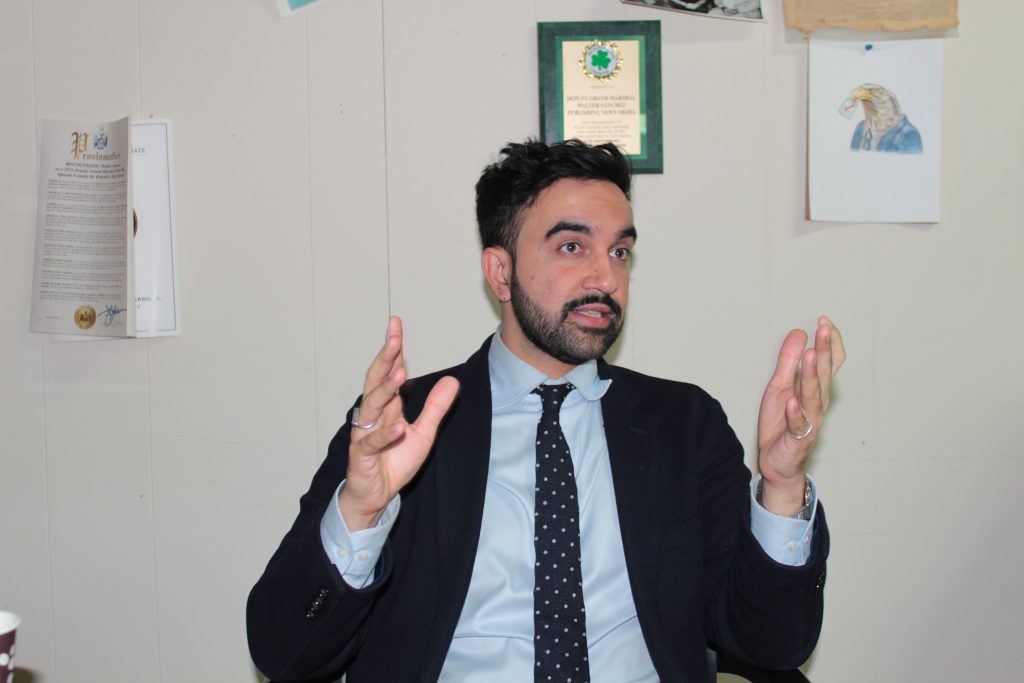
Zohran Mamdani
State Assemblymember and democratic socialist Zohran Mamdani is running for mayor with a bold promise: to transform New York City’s approach to affordability and equity from the ground up. Known for his grassroots organizing and legislative wins, Mamdani is building his campaign around an unapologetically progressive platform that prioritizes housing, transit, childcare, and food access. With the June 24 election just days away, Mamdani is framing himself as the candidate for working-class New Yorkers who have been left behind by the status quo.
Mamdani’s most creative and defining proposal is his fare-free bus pilot program, an innovative effort to make public transit more accessible and affordable for millions of New Yorkers. Coupled with his plan to implement free, high-quality childcare for every New Yorker aged six weeks to five years, and a rent freeze on stabilized apartments alongside the construction of 200,000 new units of union-built, permanently affordable housing, Mamdani is aiming to tackle the city’s affordability crisis on multiple fronts. True to his organizing roots, Mamdani’s approach is direct: “Ultimately, I want to use every breath I have in every single day of the campaign to talk about how I’m going to make the city more affordable.” His platform also includes city-owned grocery stores to fight food insecurity, all funded by public investment — not private profit.
The campaign’s reach has been powered by a vibrant ground game and a viral social media strategy that maxed out his fundraising with over 8 millions in donations and over 20,000 volunteers. From leading a hunger strike to secure $450 million in debt forgiveness for taxi drivers, to passing legislation for MENA community recognition, Mamdani’s resume is packed with progressive wins. “When you use social media, you can speak directly to New Yorkers,” Mamdani said. “It’s up to you to tell your story of what you’re fighting for.” His vision, grounded in movement politics and everyday outcomes, is resonating with voters looking for structural change, not political nostalgia.
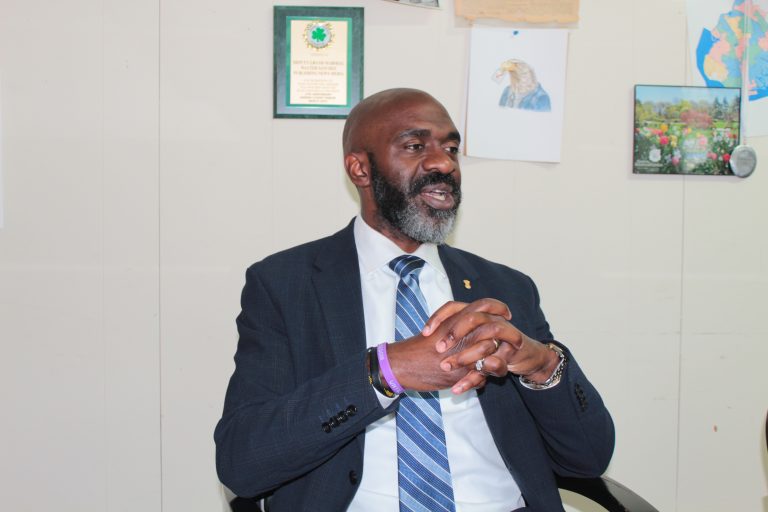
Michael Blake
Michael Blake stands out as a candidate who blends deep local roots with national experience. A Bronx native and son of Jamaican immigrants, Blake’s lifetime of public service—from working in the Obama White House to championing education and economic initiatives in the New York State Assembly—forms the backbone of his campaign. He emphasizes practical solutions aimed at expanding opportunity for all New Yorkers, particularly marginalized communities.
Blake’s most creative and ambitious idea centers on tackling the city’s housing crisis by building on every available plot of land to create more affordable homes. He argues that previous plans, like the City of Yes proposal, fell short by focusing on increasing housing units without ensuring true affordability. “Affordable to who?” Blake asks, signaling his commitment to restructuring local housing policies to be more inclusive and equitable. His call to reform credit score requirements and reassess local median income standards highlights a nuanced approach to economic fairness.
Beyond housing, Blake advocates for innovative economic measures such as taxing vacant apartments and storefronts to discourage speculative behavior that harms small businesses and neighborhoods. He also supports introducing city casinos as a means to generate jobs and community benefits, a position that distinguishes him from critics wary of gambling’s social impact. Blake’s strong federal connections, forged during his White House tenure and congressional work, bolster his pledge to craft fiscally responsible plans with clear funding strategies.
At the heart of Blake’s campaign is a message of service rooted in faith and lived experience. A licensed reverend since 1995, Blake draws strength from his Bronx upbringing and personal trials, including a near-fatal accident that shaped his outlook. His vision for New York City is a practical, hopeful one—helping residents “keep the lights on” by building economic security and opportunity.
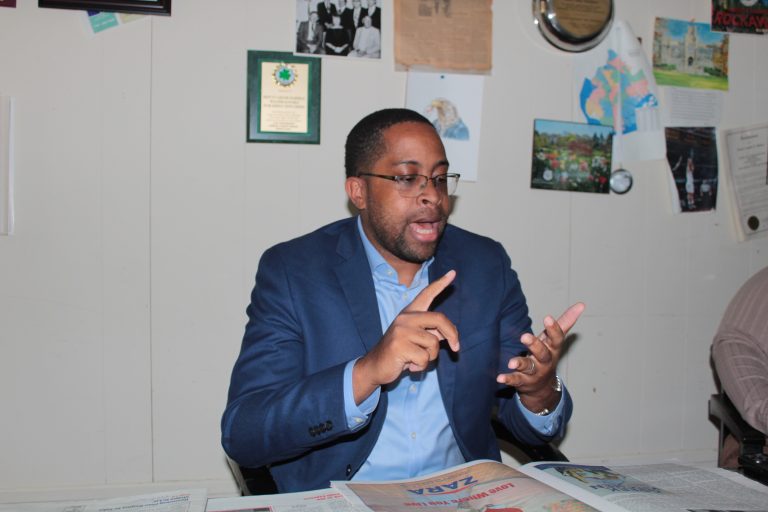
Zellnor Myrie
Zellnor Myrie’s mayoral campaign is grounded in the lived realities of New Yorkers, a perspective shaped by growing up in a rent-regulated Brooklyn apartment as the son of Costa Rican immigrants. Now a State Senator and a rising progressive voice, Myrie is running on a promise to make the city more affordable and livable for working families. He remains a regular subway rider—not as a campaign stunt, but because it’s how he’s always gotten around—keeping him connected to the everyday struggles his constituents face.
Myrie’s most ambitious and creative proposal is his “Rebuild NYC” housing plan, which aims to deliver one million new homes over the next decade. This sweeping effort would rezone Midtown for 85,000 mixed-income units, preserve 300,000 existing homes, and secure permanent funding for New York City Housing Authority (NYCHA). The plan also targets bureaucratic barriers by phasing out city council veto power over land-use projects, a move designed to speed up much-needed construction and combat the city’s housing shortage.
Beyond housing, Myrie’s campaign centers on bolstering the city’s social infrastructure. He advocates for universal after-school programs, extending care from 2:30 p.m. to 6 p.m., ensuring all children have access regardless of neighborhood wealth—a reflection of his own upbringing benefiting from such programs. On public safety, Myrie proposes increased police presence in subways, backed by 150 police-clinician teams, aiming to balance enforcement with community health. His personal experience with gun violence fuels his strong stance on gun control, including authoring the nation’s first law holding gun manufacturers accountable.
Facing a fiscal environment marked by federal cuts and budget constraints, Myrie is cautious about raising property taxes but firm on protecting programs that support working families. Positioned as a fresh progressive alternative to seasoned insiders, Myrie calls for bold action to rebuild the city, drawing inspiration from New York’s history of ambitious projects. As he puts it, “The same folks responsible for our current problems shouldn’t be the ones trusted to fix them.”
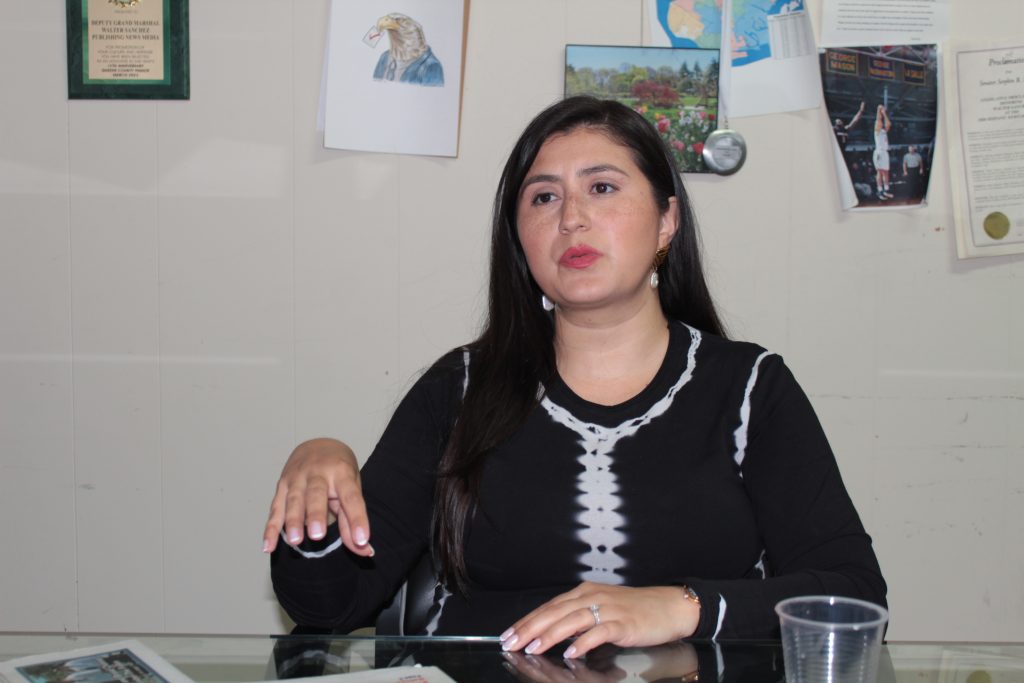
Jessica Ramos
Jessica Ramos is running for mayor of New York City with a focus on immigrant economic opportunity, affordable child care, and practical governance aimed at serving the city’s diverse communities. A Queens native and State Senator, Ramos draws from her roots as the daughter of immigrants and years working within city government to address issues critical to the city’s future. While she remains on the ballot for the June 24 primary, Ramos has formally endorsed former Governor Andrew Cuomo for mayor, signaling a strategic alliance even as she continues to advocate for her key issues.
Ramos’ signature proposal centers on expanding access to child care, which she calls “so damn expensive it’s like college tuition now.” She plans to reform child care voucher programs by broadening eligibility to cover more families and streamline access to city services through an improved 311 app that would serve as a single, comprehensive portal. Ramos also prioritizes affordable housing, pushing for expansion of voucher programs and legal services for immigrants while opposing developments like the Metropolitan Park City Field casino, which she criticizes for failing to provide sustainable, union jobs.
On public safety and social services, Ramos advocates for addressing mental health crises with expanded psychiatric beds and resources, framing housing as key to safer communities. She calls for closing Rikers Island and replacing it with smaller borough-based facilities, though she acknowledges this may take years to accomplish. Ramos is outspoken on immigrant rights, framing work permits as vital “entry points to the economy” and pledging to be a strong voice in Washington for immigration reform.
Ramos sums up her campaign spirit with an emphatic promise: “I don’t just fight, I win.” As New Yorkers head to the polls, her campaign combines grassroots experience with a pragmatic approach aimed at building a more equitable city for all.
Andrew Cuomo
We haven’t had the chance to sit down and interview Andrew Cuomo, but his campaign materials highlight his extensive public service and leadership experience as New York’s 56th governor. Cuomo’s mayoral platform focuses heavily on affordability, education, public safety, and infrastructure, promising to increase the supply of affordable housing, guarantee universal 3-K programs, and expand access to healthcare for all New Yorkers. His plan also emphasizes subway safety through a robust increase in NYPD and MTA officers, infrastructure upgrades to prevent fare evasion, and outreach to homeless individuals on the subway system.
Cuomo’s campaign touts his record as governor, including historic investments in education, economic development, and healthcare, along with major infrastructure projects like the rebuilding of LaGuardia and JFK airports, and expansions of the Second Avenue Subway and Moynihan Train Hall. His administration pushed progressive policies such as marriage equality, paid family leave, a $15 minimum wage, and free college tuition for middle-class New Yorkers, all while maintaining fiscal discipline through responsible budgeting and tax reforms aimed at middle-class relief.
However, Cuomo’s bid for mayor carries the weight of controversy. He resigned as governor in 2021 following a damning report by the New York attorney general’s office that found he allegedly harassed 11 women and presided over a hostile work environment driven by fear and intimidation. While Cuomo initially apologized for being overly familiar with women, he has since recast himself as a victim of “cancel culture,” arguing the investigations were politically motivated and flawed. His return to politics reignites debates over accountability and the lasting impact of these allegations on New York’s political landscape, even as the race mainly centers on pressing issues like crime, affordability, and public safety.
